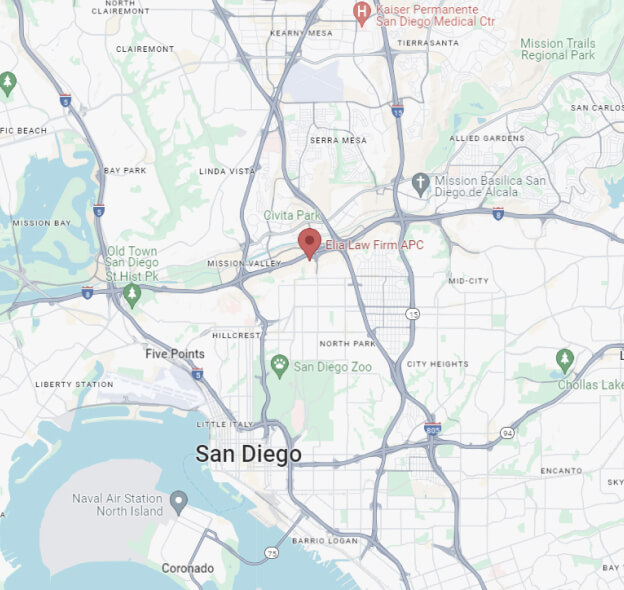What the law really says and how that might change
Any time there is an outbreak of preventable disease in this country we remember that there is no such thing as a perfect vaccine. They can fail, if rarely, and it only takes a moment of exposure to catch an airborne disease from an incautious carrier.
According to the California Department of Public Health (CDPH), at least 17 reported cases of measles in the current outbreak occurred in persons who had been vaccinated for the disease, a tiny number against the vaccinated population, but they had taken steps to avoid the disease and caught it anyway. They are not responsible for their sickness, but does that mean the person who exposed them is?
The answer may be yes, if you can prove they acted carelessly.
Legally careless
Negligence is a kind of tort (a civil wrong that is actionable) defined as “the breach of a duty to use reasonable care, that causes damage or injury to another”, meaning their are instances where carelessness leaves someone responsible for harm done to someone else. A Negligence cause of action has four elements that must be met: duty, breach, causation and damages.
-
- Duty—a law exists laying out a responsibility that needs to be followed.
- Breach of duty—the legal responsibility was not met.
- Causation—a reasonable person could have foreseen the consequences of the action at hand.
- Damages—the defendant’s actions caused real harm to the victim.
If any one of these cannot be proven there is no case.
With this in mind, if a person (or their child) caught a disease from an adult or child who did not take basic steps to prevent it from spreading, is the latter negligent under the law?
Not in California where the duty to be immunized against disease is not absolute.
California’s exemptions
All states nominally require vaccinations for children enrolled in public school or public services like daycare. The required ones vary from state to state, with California’s law requiring ten unique immunizations and associated boosters. Recognizing that some people cannot receive vaccinations for medical reasons, the state allows parents to opt their child out of them with signed proof from a doctor that there is a danger to a weakened immune system. Since the child is vulnerable, it’s up to other people to prevent the disease from reaching them, so each immunized person is one less vector. The more people who opt out, the more chances a disease has to reach people who can’t be protected at all. This is where California’s other exemptions become controversial.
Religious or philosophical objections to vaccines both count under “personal belief” in California law. Parents can choose either one to exempt their child from mandatory immunization with few questions asked. As a result vaccination numbers have decreased—looking at measles specifically, rates fell from near universal and now immunocompromised and too-young-for-vaccination children are at risk. With the exemptions, parents of sick kids have no standing to make negligence claims since there is no breach of duty when an unvaccinated child infects those who cannot receive protection or whose protection failed.
The bill that could change things
It’s called Senate Bill 277. Introduced February 19th by Sacramento Senator Richard Pan, Santa Monica Senator Ben Allen, and San Diego Assemblymember Lorena Gonzalez, it would end the personal belief exemption and require school districts to inform parents of the immunization rate at their child’s school. The bill makes no direct mention of a religious exemption, though Senator Pan, a pediatrician, observed that California’s Health and Safety code also does not (worth noting is that there are no religions that are against vaccination). The medical exemption would remain intact.
With the duty to seek immunization if medically possible firmly established, it may become possible to sue for negligence, though caveats remain. There are no immunization requirements for adults at all. Foreign visitors and immigrants are required to get vaccines as part of the application process, but the usual exemptions apply. And there is the chance for a vaccination to fail, and a person who took all reasonable precautions can become a vector.
Even with those uncontrollable factors, strengthening the crowd effect can only be a good thing. But whether or not there is such thing as a perfect vaccine, people will have to consider the legal consequences of avoiding vaccination.
And by the same token, as this bill tries to make it’s way into law, perhaps the government should think about their own legal consequences as well. In fact, don’t be surprised if we see a rise in civil litigation cases here in San Diego courts where a good percentage of parents stand strongly on the anti-vax side.
(Read “Much Ado about Measles in San Diego.)
- Who Is at Fault in a Motorcycle Lane Splitting Accident in California? - August 26, 2024
- Are Dogs Attacking Without Warning or Are We Misinterpreting Key Signals? - March 4, 2024
- Can You Sue If No One Witnessed Your Slip and Fall Injury? - February 10, 2024












